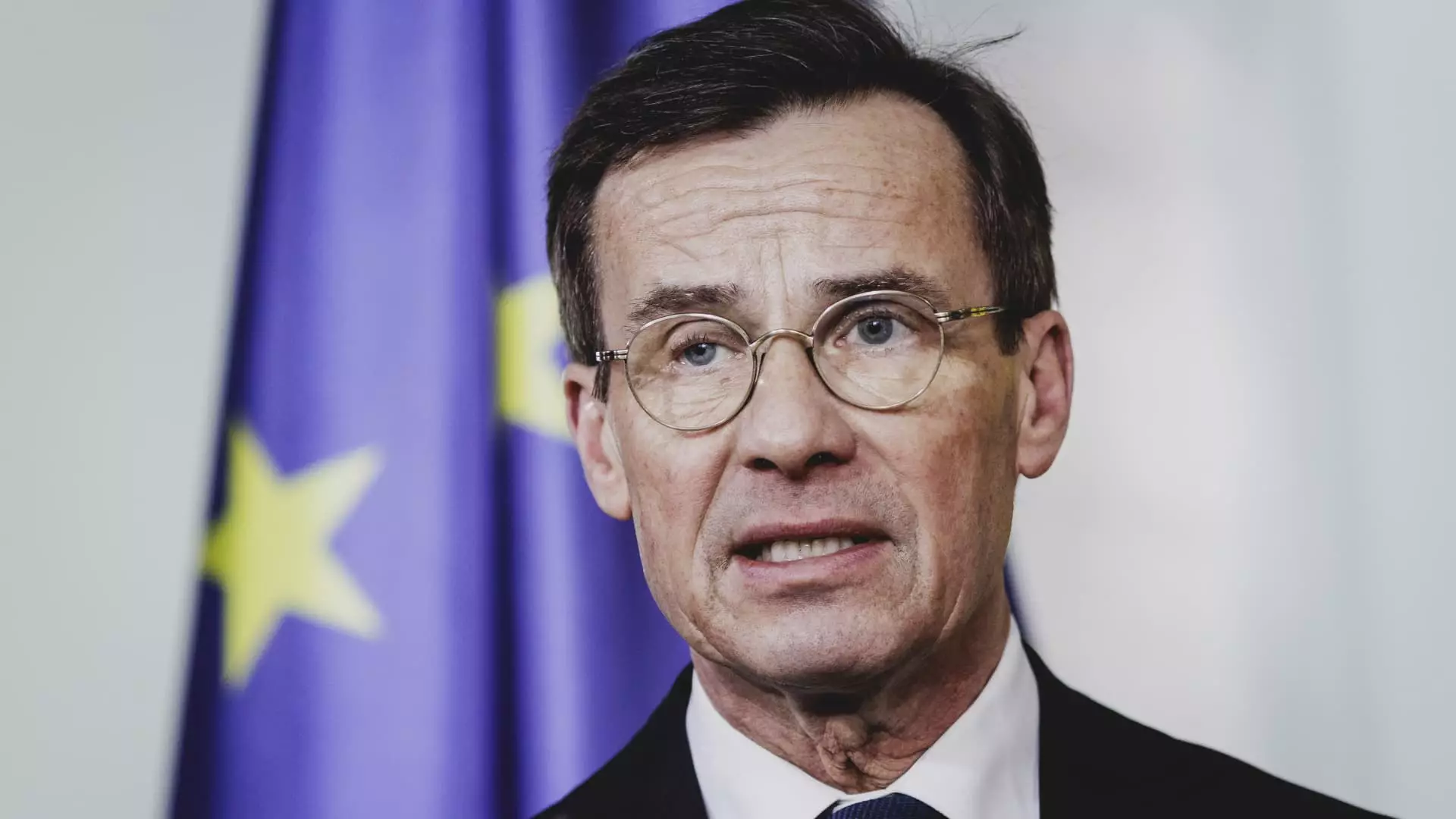In an era marked by rapid advancements in artificial intelligence (AI), Europe finds itself at a crossroads. Recent statements from Swedish Prime Minister Ulf Kristersson have highlighted a pressing concern: the continent risks becoming an anachronism, likened to a “museum,” if it fails to adapt its stringent regulations governing AI technologies. The insights shared at the Techarena event in Stockholm reflect a broader and urgent dialogue regarding Europe’s position in the global AI landscape, particularly in comparison to the burgeoning sectors in the United States and China. This article delves into the implications of Kristersson’s remarks and explores the necessity of reevaluating Europe’s regulatory framework to foster innovation and competitiveness.
Kristersson articulated a critical view of Europe’s economic trajectory, pointing to a stark reality over the past two decades: while American and Chinese economies have seen exponential growth, Europe has lagged considerably. This observation prompts a deeper analysis of the factors contributing to this stagnation. A significant element has been the EU’s cautious approach to technological regulation, specifically with the enactment of the AI Act—characterized as a pioneering but imperious set of rules aimed at curbing the possible risks associated with artificial intelligence. Such regulations, while intended to ensure safety and ethical use, have inadvertently stifled innovation and discouraged investment in AI at a time when responsiveness is crucial.
Recent moves by European leaders contrast sharply with the U.S.’s disbursal of resources toward AI development. French President Emmanuel Macron’s announcement of a substantial 109 billion euro investment, bolstered by commitments from foreign and domestic investors alike, underscores the strategic shift needed in Europe. The scale of this investment—akin to the staggering $500 billion Stargate AI venture proposed by the U.S.—beckons a renewed collective commitment toward fostering a vibrant AI ecosystem in Europe. While such financial infusions are important, the underlying regulatory atmosphere must change concurrently to cultivate an environment conducive to growth, innovation, and international collaboration.
The recent remarks by U.S. Vice President JD Vance at the Paris AI Action Summit bring to light the pressing need for Europe to reassess its regulatory priorities. Vance emphasized that Europe’s excessive focus on regulation over technological empowerment could lead to missed opportunities in a global technology landscape that is fiercely competitive. For the continent to regain its footing, he argued, it must embrace AI with a sense of optimism rather than wariness. This dichotomy between regulation and innovation poses a fundamental challenge for Europe, necessitating a balance that can safeguard against risks while simultaneously unleashing the potential of AI technologies.
The overarching sentiment voiced by leaders such as Kristersson highlights the need for reducing bureaucratic red tape, improving access to capital, and attracting talent. Companies struggling to navigate the maze of European legislation face existential threats, leading some to relocate operations to jurisdictions that offer more favorable conditions for growth. This exodus not only diminishes the technological prowess of European nations but also weakens their economic viability on the global stage. Kristersson’s call for less regulation and more capital access is not merely a reflection of frustration but a strategic vision that, if enacted, could pivot Europe toward a more resilient and innovative future.
As Europe stands at this crucial juncture, it is imperative that the continent’s leaders take stock of the evolving landscape of artificial intelligence. The need to harmonize regulation with the imperatives of innovation is clear; failure to do so could result in a significant setback for Europe in an era defined by technological advancement. By reimagining regulatory frameworks—prioritizing flexibility, encouraging investment, and nurturing talent—Europe has the potential to transform itself from a museum of past achievements into a vibrant player on the global AI stage. The future is at stake, and decisive action is essential to ensure that Europe thrives in an era dominated by AI innovation.


Leave a Reply
You must be logged in to post a comment.